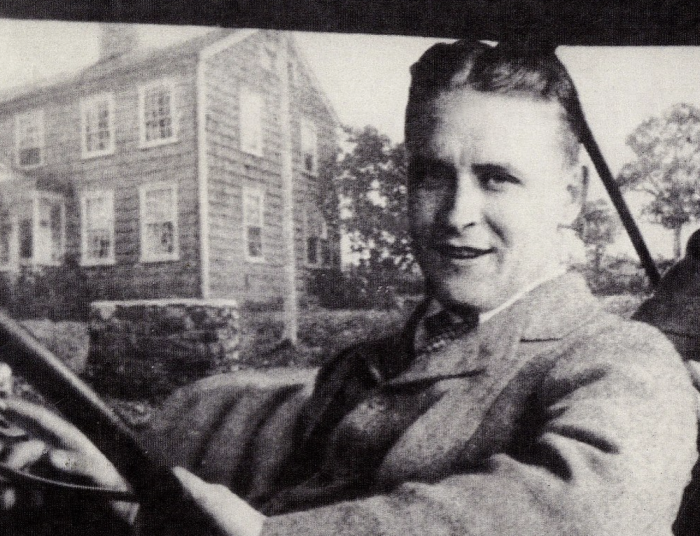“That is part of the beauty of all literature. You discover that your longings are universal longings, that you’re not lonely and isolated from anyone. You belong.” ~ F. Scott Fitzgerald
~
Why are we drawn to writers?
Well, for one thing, they are good with words.
Writers have a way of making an otherwise complicated self-reflective thought, simple—and the complex and difficult to understand emotion, easy, clear, and graspable.
The best writers can achieve this in just a few thoughtfully arranged words that etch into our memories, leaving us inspired and living by them as personal mantras.
Sometimes, the words simply explain to us what happened in our lives—what went down and why.
When I face a situation that is deeply affecting me, I often turn to my own words for comfort—but I also search for meaning through the words of the writers before me, and the wisdom contained within them.
Think of it this way, some writer out there has already performed due diligence on my situation.
One such writer is F. Scott Fitzgerald.
So in honor of his birthday, let’s play that fantasy dinner guest game and invite him to my table!
I’m in to discuss life, laugh, and linger with one of the greatest American novelists of all time.
I know the evening would go smashingly well and be chock full of notable, quotable moments.
It would unfold something like this.
We’d start with small talk about the weather as we are entering a new season. And with a mention of the fall and what that brings, I would share that, for me, the change of seasons is about the revival of self—and with that, so many beautiful sights and feels are available to discover—along with a whole new attitude and renewed spirit.
And he’d casually reply, “Life starts all over again when it gets crisp in the fall.”
We would then start speaking about friendships. We’d talk about those people who have listened without judgment in our lives and not tried to overpower us with their own experiences—rather their kindness, empathy, and ability to really listen to another.
He’d sum friendship up like this: “To be kind is more important than to be right. Many times, what people need is not a brilliant mind that speaks but a special heart that listens.”
His friends Edmund Wilson and John Peale Bishop from his Princeton days would no doubt be discussed and how their bond supported him and propelled his career—and even finished his work when he couldn’t. And I’d want to share about my relationship with my good friend and colleague in India—the amazing friendship and lifetime bond we have formed, the trust we have in each other, and the immense value found in true male friendships like ours. My friend in India, yea, he listens too.
F. Scott would smile and warmly reply, “Let us learn to show our friendship for a man when he is alive and not after he is dead.“
Soon thereafter, we’d share laughter comparing teenagers, even my own sons, and their convictions and beliefs, to those of men in their 50s who have been through more of life’s rough stuff and see the world much differently now, though still with some innocence.
“People over 40 can seldom be permanently convinced of anything. At 18 our convictions are hills from which we look; at 45 they are caves in which we hide.”
As we would pour another glass of wine and night fell upon us, our discussion would shift to a more serious tone.
We’d wander topics like darkness, depression, and sadness—the idea of running away from pain or using constant movement as a convenient distraction away from our suffering.
He would look me squarely in the eyes and speak slowly in a low tone.
“You see, I usually find myself among strangers because I drift here and there trying to forget the sad things that happened to me.”
We’d then travel through personal accounts of our own failures and missteps along our respective paths. An honest and poignant recital of truth by both of us that would reveal a lot to one another.
He would offer his keen awareness of the subject.
“The loneliest moment in someone’s life is when they are watching their whole world fall apart, and all they can do is stare blankly.”
Redemption, resiliency, and resurrection would be explored, and the value of owning and integrating all of our mistakes versus running from them and pretending they didn’t happen would be agreed on. We’d acknowledge that they were choices we made along the way, and they all happened for a reason.
And of course, without pause, he’d utter,
“Experience is the name so many people give to their mistakes.”
We’d speak of aging and about the importance of health, mental and physical strength, self-care, and listening to our bodies, minds, and our needs. I’d ask him about the art of persistence, which I’ve practiced professionally, and the art of letting go.
Francis would then remind me that sometimes there is another option.
“Vitality shows in not only the ability to persist, but in the ability to start over.”
At this point in our evening, we’d be bathed in candlelight and soft music with all the windows open, and the feeling of nightfall in the room.
We’d speak of love.
His heart’s pangs and pleasures from his first love and muse for The Great Gatsby, Ginevra King, his struggle with his wife Zelda’s mental illness, and the adoration for young starlet Lois Moran would light up the night in conversations.
And I’d open up even more and gush that some of his written words are the description of someone stunning and special to me, and she happens to be a pretty good writer as well.
“She was beautiful, but not like those girls in the magazines. She was beautiful, for the way she thought. She was beautiful, for the sparkle in her eyes when she talked about something she loved. She was beautiful, for her ability to make other people smile, even if she was sad. No, she wasn’t beautiful for something as temporary as her looks. She was beautiful, deep down to her soul. She is beautiful.”
We’d end our evening discussing our need to write and the feeling we have when we know our words are flowing, creating something really special. We’d compare it to a physical event. He’d say, “All good writing is like swimming underwater and holding your breath.” And, I would stand up in agreement.
We’d thank each other for a wonderful evening, hug, and I’d suggest we do it again, next fall. And I’d tell F. Scott Fitzgerald that I may write a little story of our evening of discovery.
“You don’t write because you want to say something, you write because you have something to say.”
Because, well, I had something to say—and that is thank you, Francis Scott Fitzgerald.
I’ve read in more than a few places that F. Scott Fitzgerald considered himself a failure.
Well, his words, his short stories, his novels, and his personal tragedies certainly don’t paint that picture for me.
He’s a great American writer, who had his personal struggles, like the rest of us, and I will covet our dinner story with a great amount of reverence and cheer, and I think I’ll read The Great Gatsby once again.


 Share on bsky
Share on bsky





Read 6 comments and reply